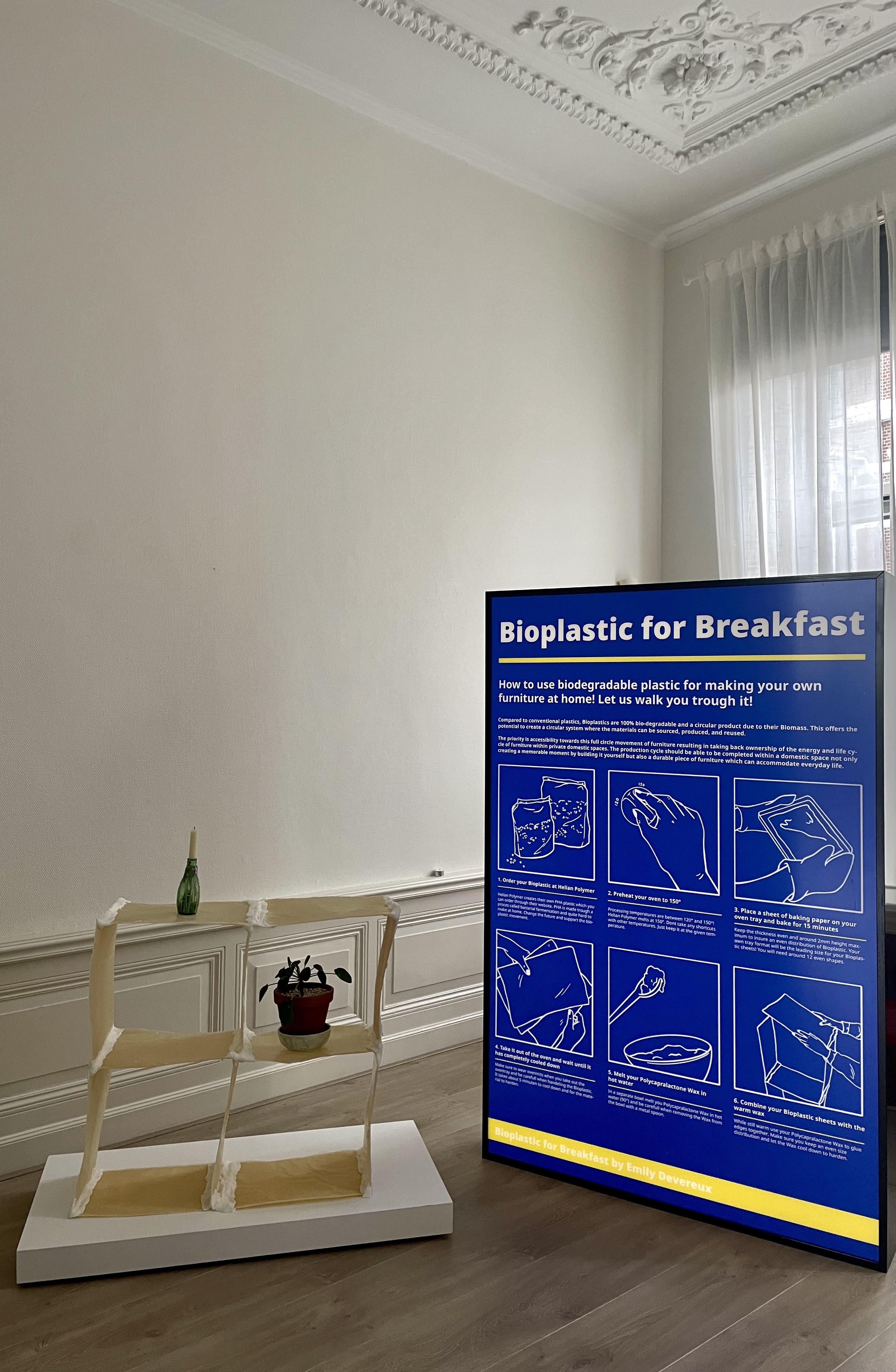
Bioplastic for Breakfast
Within the last
urgency to address sustainability concerns,
particularly regarding the environmental impacts of
traditional manufacturing processes and materials.
Within this context, bioplastics have emerged as a
promising alternative, derived from renewable
biomass sources such as glycerine and starch,
offering potential solutions to the ecological
challenges posed by plastics.
The integration of bioplastics into furniture design
presents a compelling narrative, an opportunity to
reshape domestic spaces and influence the future of
design and waste management. This intersection
offers profound implications for both environmental
sustainability and aesthetic innovation.
Bioplastics are 100% bio-degradable and a circular
product due to their Biomass. This offers the potential
to create a circular system where the materials can
be sourced, produced, and reused.
The priority is accessibility towards this full circle
movement of furniture resulting in taking back
ownership of the energy and life cycle of furniture
within private domestic spaces. The production cycle
should be able to be completed within a domestic
space not only creating a memorable moment by
building it yourself but also a durable piece of
furniture which can accommodate everyday life.